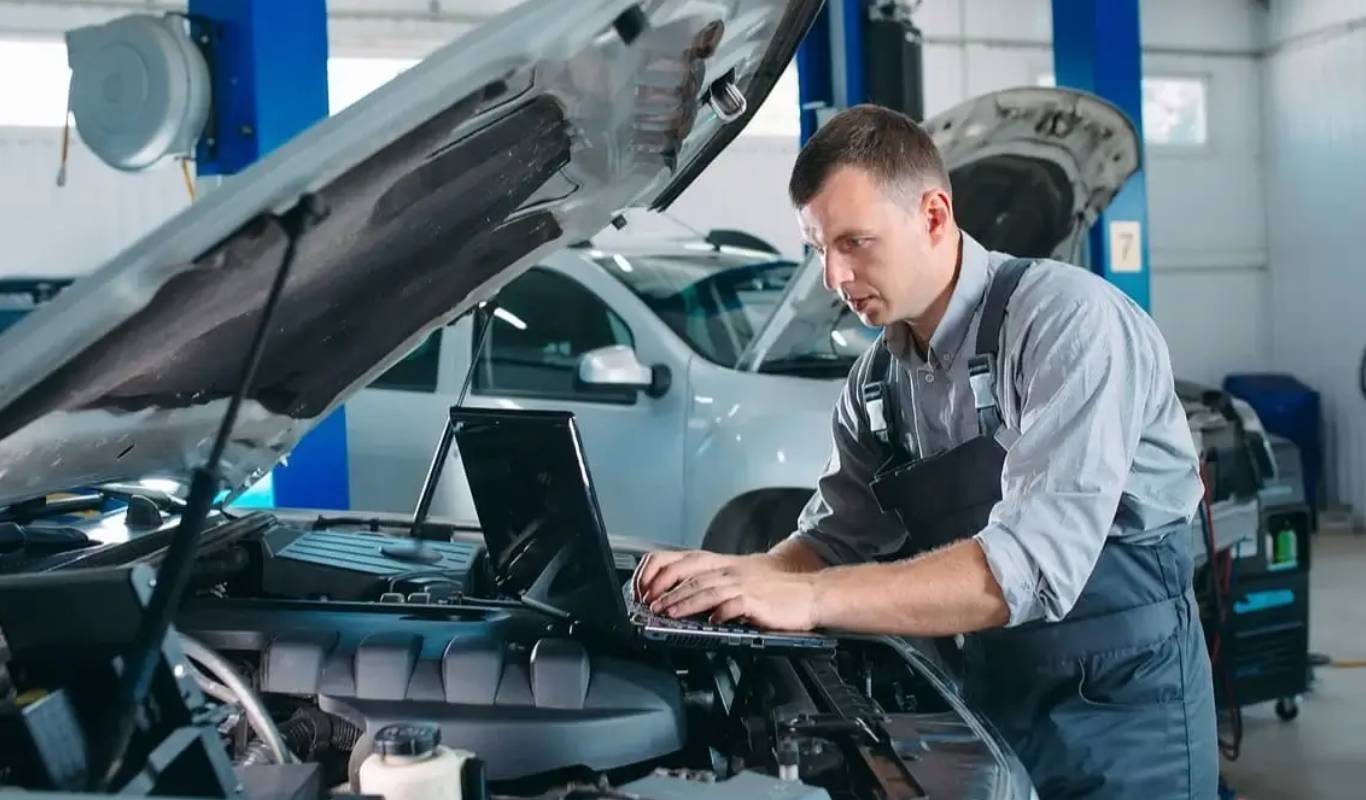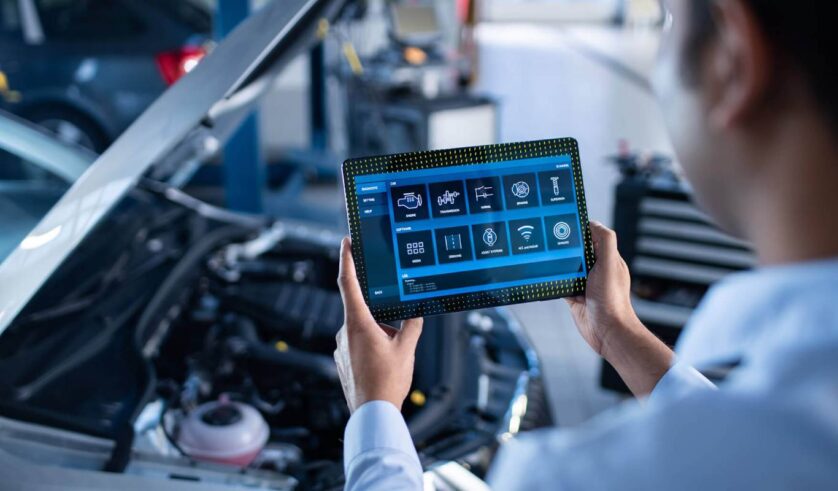Vehicles, due to their mechanical nature, are prone to develop faults and problems due to fatigue, deterioration and other factors. It has always been overwhelming for beginners to locate the source of the problem and handle it. Well, not anymore; our blog will help you if you are experiencing any issues with your car.
In our blog, we have explained how you can use your senses to locate the source of the problem and diagnose it. It will provide you with a very good idea of how to manage it. Make sure to stick to the end.
Feel the Problem
Vibrations
Unusual vibrations can indicate various issues with your car. Vibrations can occur due to multiple reasons. Pay attention and try to locate the source of the vibrations. The following details may help you in diagnosing the problem:
- Steering Wheel: Vibrations in the steering wheel could point to problems with tire balance, alignment, or issues with suspension components.
- Brake Pedal: Vibrations in the brake pedal while braking might indicate warped brake rotors or issues with the braking system.
- Seats or Floor: Vibrations felt throughout the vehicle might suggest problems with suspension components, drivetrain, or engine.
Loose or Hard Steering
Changes in steering response can signal problems with steering components, alignment, or the power steering system. If your steering wheel feels loose or disconnected, or it has developed more resistance than usual, here are its common causes:
- Loose Steering: If you feel that the steering wheel is loose or has developed unusual play, it could indicate worn-out steering linkage, tie rods, or ball joints.
- Hard Steering: Difficulty in turning the steering wheel might be due to issues with the power steering system, such as power steering fluid or pump.
Brakes Pedals
Brakes are arguably the most important part when it comes to the safety of you and your vehicle. Hence, it becomes imperative to eradicate any brake issues immediately. Here is how your brakes feel can reveal crucial information about their condition:
- Spongy Brake Pedal: A spongy or soft brake pedal might indicate a brake fluid leak or the presence of air in the lines.
- Hard Brake Pedal: A hard brake pedal might be caused by vacuum issues in the brake booster or a malfunctioning master cylinder.
Leaning or Pulling
Feeling your car lean while driving or turning can be very scary and could indicate problems with the suspension or alignment:
- Uneven Leaning: If the car leans to one side while driving straight, it might indicate suspension issues, a damaged strut, or worn-out springs.
- Excessive Body Roll: If the car leans excessively during turns, it might suggest worn-out or damaged sway bars or suspension components.
Listen to The Problem
Creaking
When you go over a bump or sag, and you hear a creaking sound coming out beneath your car, it is probably your suspension calling for your attention. Here are a few possible reasons:
- Worn-out Suspension: A worn-out strut tends to produce a sound of clink when your car hits a bump.
- Dry Ball Joints: The bushings and the ball joints will creak if the grease has dried out. You will need to lubricate them again.
Squealing
There are a few reasons that might be behind the squealing sound coming out of your car. It depends upon the scenarios, such as:
- Loose Steering Belt: If the squealing sound is heard while you are turning your car, it may indicate a loose steering belt.
- Worn-out Brake Pads: If you hear squealing every time you hit the brake pedal, it means your brake pads have worn out.
Grinding
A grinding noise is usually mixed up with additional vibrations means a problem with your gears or maybe brake pedals:
- Worn Out Gears: If you are hearing grinding noise with harder than usual gear shift, you may need to check the gears for wear and tear.
- Brake Rotors: Grinding noises can also be produced due to worn-out brake rotors or if some debris is caught between the brake rotor and the pad.
Banging
Banging sounds occur when fuel ignites at the wrong time. There are some scenarios that can cause this, such as:
- Incorrect Ignition Timing: If the ignition timing is set too advanced, it can lead to knocking as the spark plug fires too early in the engine’s compression cycle.
- Worn or Improperly Installed Spark Plugs: Worn or incorrect spark plugs can cause uneven ignition, leading to knocking.
- Detonation: This occurs when the air-fuel mixture ignites too quickly and creates multiple flame fronts, leading to knocking.

Use Your Eyes
Warning Lights
Dashboard warning lights are crucial indicators of potential issues in your car’s systems. When a warning light comes on, it’s a signal that something in your car requires your immediate attention:
- Check Engine Light: This indicates a potential problem with the engine or emissions system. It could range from minor issues to more serious problems.
- ABS Light: If this light is on, there might be an issue with the anti-lock brake system, affecting your vehicle’s braking performance.
- Battery Light: If this light is illuminated, it indicates that you may have a problem with the charging system. It could be a failing alternator, battery, or related components.
Tires
Inspecting your tires regularly helps maintain safe driving conditions and prevent uneven wear:
- Tire Pressure: You must ensure to maintain proper tire pressure as per the manufacturer’s recommendations. Underinflated or overinflated tires can affect handling, fuel efficiency, and tire wear.
- Uneven Wear: Uneven wear patterns on tires are a sign of suspension or wheel alignment problems.
Fluid Leaks
Fluid leaks can lead to serious problems if left unattended. Identifying the type of fluid and its location can help diagnose the issue:
- Engine Oil: Look for dark brown or black spots under the engine. Oil leaks can be indicative of worn gaskets, seals, or other engine issues.
- Coolant: Coolant leaks may appear as coloured (usually green or orange) puddles under the car. Overheating issues or damaged hoses could cause coolant leaks.
- Transmission Fluid: Transmission fluid leaks might be reddish or brown and located near the transmission. Leaks could be due to worn seals or gaskets.
- Brake Fluid: Brake fluid leaks are serious and should be addressed immediately. Look for clear or slightly brown fluid near the wheels or brake lines.
Smell the Problem
Sulphur
When you feel your car is producing a sulphur smell when it is in idle condition, and it increases while you accelerate, it may be time for you to take your car to the service.
- Battery problem: When the battery of your car is nearing the end of its life span, it may start producing the smell due to a high concentration of sulphuric acid.
- Catalytic Converter: A catalytic converter filter the gases coming out of the exhaust system. If it is having some problem, it may also stink.
Fuel or Exhaust
If you smell any of those, it may be an extremely dangerous scenario that needs to be addressed immediately.
- Exhaust System Problems: There may be a leak in your exhaust system due to a hole. It needs to be fixed because the exhaust system is rich in toxic gases that can harm you physically.
- Fuel Leaks: If you are smelling the fuel, it means you have a leak in the fuel system that needs to be addressed immediately.
Sweet
If you are smelling a sweet odour coming out of your car, it may be because you have a coolant leak issue on your hands, and you need to check it immediately. Leakage or absence of coolant will cause overheating of your engine, which can severely damage your car’s engine.


